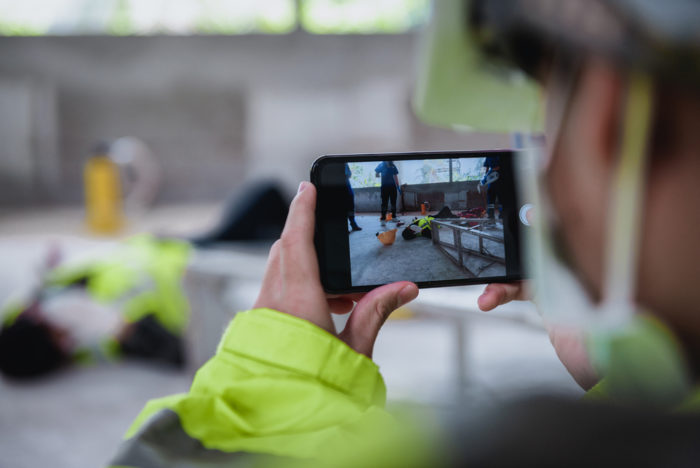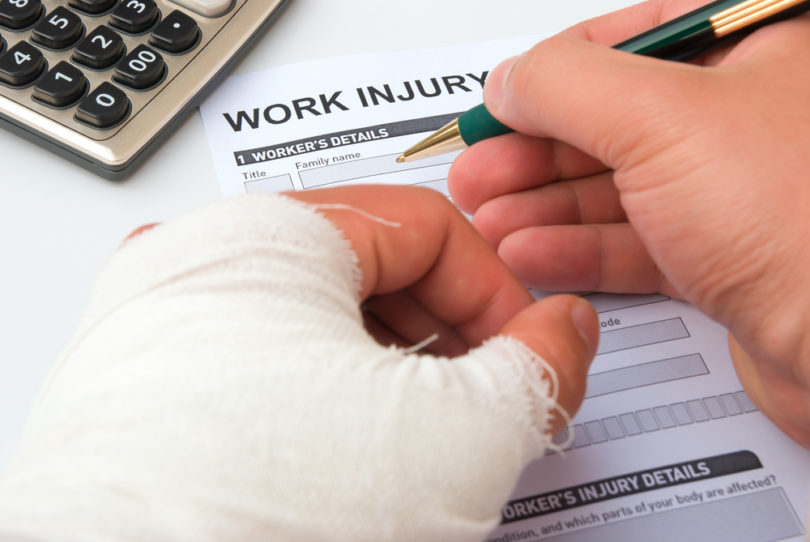Injuries resulting from a slip-and-fall accident in the workplace are never easy to deal with. The recovery process can feel stressful and being unable to work while bills and medical expenses keep piling up will make anyone feel overwhelmed.
Your best move at this point would be filing a personal injury claim, so you’ll at least be able to avoid financial problems by recovering the compensation you deserve.
Dealing with legal issues and all their complexities is extremely hard to do on your own, and it will most likely lead to a negative outcome for your case.
If the process evolves into a lawsuit, speaking with a judge and dealing with courtroom anxiety while injured would be a terrible idea.
Luckily, there are professionals you can hire who know the entire process very well and can help you recover full compensation in the fastest way possible.
Getting in touch with personal injury lawyers will allow you to focus on your recovery while an attorney takes care of the hard part.
You won’t have to worry about filing paperwork and recognizing a good offer if a professional is already doing it for you.
Steps That Will Protect Your Rights
Before you proceed, you need to make sure you act rationally. You don’t want to end up ruining your claim’s value or even your possibility of filing one because you did something without considering the consequences.
Social Media Posts
We’re in the digital era now, and while it may sound strange on paper, content on social media can be used as evidence in a legal case.
This includes your posts, but also every single post and photo that you are tagged in by other people.
The at-fault party can utilize this content to make it seem like you’re exaggerating and you’re not telling the truth about the full extent of your injuries.
That’s why you should consider staying away from your social media accounts when legal issues arise, especially when you’re dealing with a slip-and-fall case, which is already hard to prove due to the numerous events that might lead to it.
Losing Important Evidence

To receive adequate compensation for a slip-and-fall accident at work, you need a lot of evidence that can be easily lost within minutes of it happening.
After you fall, you should report the accident to the owner of the property or to the people responsible for managing it.
Don’t forget to take pictures of your injuries and ask for surveillance camera footage that may have captured your fall.
Speaking with the Insurance Company
Insurance companies are not like lawyers. They’re not fighting with your best interests in mind, they’re trying to protect their profits and avoid payout before anything else.
You should never speak with an insurance company without a lawyer. Anything you say, whether it’s a recorded statement or otherwise, can be used against you and has the potential to compromise your claim.
You should always let a legal advisor negotiate with these companies before you even say a word, as he already knows what they’re trying to do and will refuse any low settlement offers.
Patience Is the Answer
As with pretty much anything in life, being patient is essential if you want to reach a positive outcome. That’s why, before even following these steps, you should always think before you act.
After falling, you shouldn’t jump up and start walking immediately. Take your time to see the results and evaluate your ability to move. It would also be wise to stand still until medical personnel arrives.
Slip-and-fall cases already carry a stigma, and they’re seen as just an excuse to effortlessly recover money. That’s why you should always be careful with what you say in the aftermath of an accident at work.
Speaking with a lawyer and staying calm will allow you to proceed smoothly.


